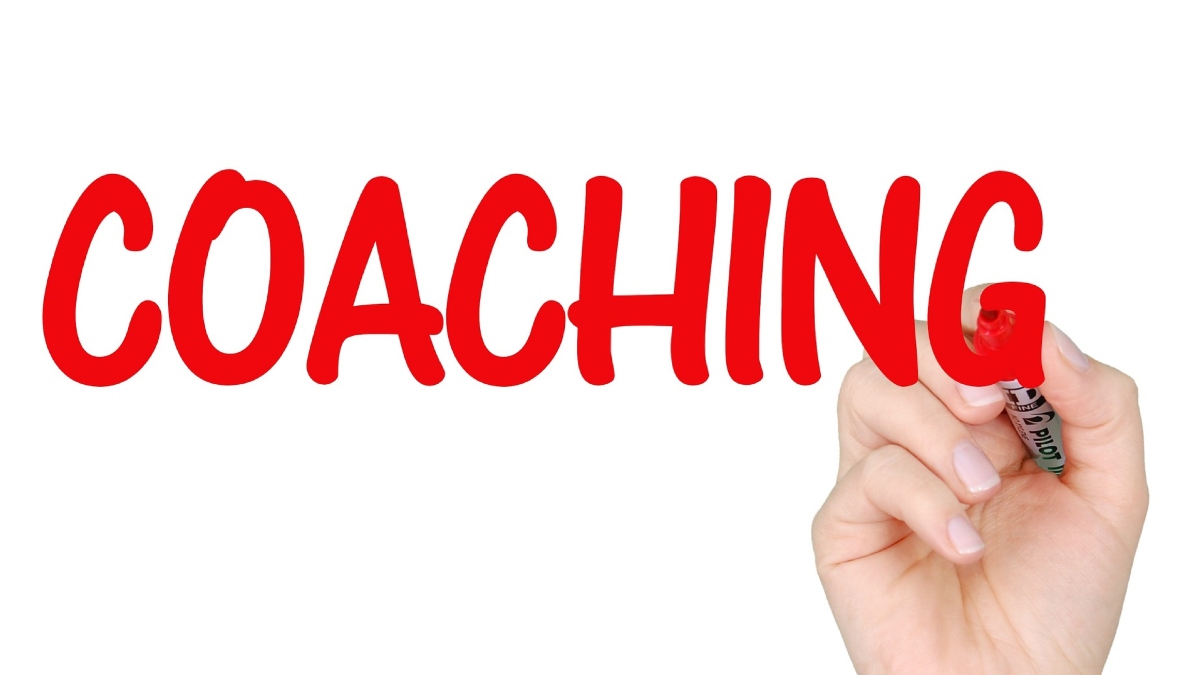As an entrepreneur or business owner, you’re probably always looking for ways to improve your business and achieve greater success. One way to do that is to work with a business coach. A business coach is a professional who provides guidance and support to entrepreneurs and business owners to help them grow their businesses and achieve their goals with less stress.
In this blog post, we’ll explore what a business coach is, what they do, and how they can help you succeed in your business.
What is a Business Coach?
A business coach is a professional who provides guidance and support to entrepreneurs and business owners to help them achieve their goals and lessen the pressure while growing their businesses. A business coach can help you identify your strengths and weaknesses, set goals, and create an action plan to achieve those goals.
Different Types of Business Coaches
There are different types of business coaches, each with a different area of expertise. For example, some coaches may specialise in marketing, while others may focus on finance or leadership. Some coaches work with startups, while others work with established businesses.
Qualities of a Good Business Coach
To be a good business coach, one must possess certain qualities that will make them effective in their role. These qualities include the following:
Experience
A good business coach should have relevant experience in the business world, either as an entrepreneur or a business leader.
Knowledge
A good business coach should also have a deep understanding of business principles and practices, as well as industry-specific knowledge.
Communication skills
An effective business coach should be an excellent communicator who can convey information in a clear and concise manner.
Empathy
Entrepreneurs and business owners face different challenges, and a good business coach should be able to understand and empathise with any situation you are in.
Accountability
Good business coaches should hold clients accountable for their actions and ensure they follow through on their commitments.
Why Businesses Need a Coach (How a Business Coach Can Help You)
Every business owner wants to grow and succeed. But if you feel too much pressure, a reliable business coach can help you relieve some of the stress in managing and growing your business. You may need a business coach for the following specific reasons:
- To help you define your vision and goals and create a plan to achieve them.
- To provide an outside perspective and offer objective feedback on the business. This way, you can see things differently and make better decisions.
- To help identify blind spots and areas for improvement.
- To keep you focused and accountable, ensure you are consistently working towards your goals.
- To help you become a more effective business owner and leader by developing your leadership, communication, and strategic planning skills.
- To help you identify and overcome obstacles that are holding you back, such as fear, self-doubt, or a lack of resources.
Examples of How a Coach Can Help You
Let’s look at some specific examples of how a business coach can help you achieve success in your business.
Develop a Business Plan
A business coach can help you develop a comprehensive business plan that outlines your goals, strategies, and action steps.
Create a Marketing Strategy
A marketing strategy is a plan of action that outlines how you will promote and sell your products or services to your target audience. Your business coach can help you develop a marketing strategy that targets your ideal customer and drives sales.
Improve Your Financial Management
A business coach can help you manage your finances more effectively. They can help ensure you have a healthy cash flow and make smart financial decisions.
Enhance Your Leadership Skills
To build a strong team and lead your business effectively, your business coach can help you develop your leadership skills, such as delegation, communication, decision-making, and conflict resolution.
Provide Accountability
A business coach can help you stay accountable to your goals and make sure you’re taking the necessary steps to achieve them.
The Business Coaching Process

The business coaching process is a dynamic and collaborative process that requires ongoing commitment and engagement. It typically involves a series of steps, including the following:
Step 1: Setting Goals
The first step in the business coaching process is setting clear and specific goals. Your coach will work with you to identify your objectives and desired outcomes. This step is critical because it helps the coach understand what you want to achieve. It will also help create a clear focus for the coaching relationship.
During this phase, the coach may ask questions to help you clarify your goals, such as “What do you want to accomplish?” “What does success look like to you?” “What are the specific outcomes you want to achieve?”
Once the goals are identified, they should be documented and reviewed regularly to ensure that the coaching process is aligned with the client’s objectives.
Step 2: Creating an Action Plan
After establishing the goals, you work with the coach to create an action plan to achieve those goals. The plan outlines the specific steps, including timelines, resources needed, and potential obstacles.
This phase involves breaking down the goals into smaller, more manageable tasks and creating a roadmap for achieving them. The coach may guide you on prioritising tasks, allocating resources, and developing strategies for overcoming challenges.
Step 3: Regular Meetings
You and your coach will meet regularly to discuss progress and make adjustments as needed. The frequency of meetings will depend on your specific needs and the goals you want to achieve. Regular meetings help ensure that your business stays on track. They also provide an opportunity to address any issues that may arise.
During these meetings, the coach may ask questions such as, “What progress have you made towards your goals?” “What challenges have you encountered?” “What adjustments do we need to make to the action plan?”
Step 4: Progress Reports
The coach will provide you with reports to track progress and measure success. These reports outline the improvement made towards your goals, identify any challenges or obstacles that need to be addressed, and provide feedback on the client’s performance.
Progress reports can motivate you, provide accountability, and serve as a basis for evaluating the coaching relationship’s effectiveness. The coach may use progress reports to adjust the coaching process as needed.
Step 5: Skill-Building and Training
During the coaching process, the coach may identify areas where you or your people need to improve skills or knowledge. The coach may provide training or resources for this need.
Skill-building and training can be vital to the coaching process, providing you with the knowledge and expertise needed to succeed in your business endeavours.
Step 6: Continuous Support and Improvement
The coaching process is designed to be iterative and ongoing. As you achieve initial goals, new goals may be set. The coaching process may focus on developing new skills and achieving new objectives. The coach may help you identify new opportunities for growth and development and work with them to create a new action plan to achieve these goals.
Continuous improvement is an essential aspect of the coaching process. It allows the client to continue building on their successes and achieving new levels of growth and success in their business. The ongoing process requires the coach and client to remain supportive, committed and engaged in the coaching relationship.
Step 7: Evaluation and Feedback
At the end of the coaching relationship, you and your coach will evaluate the progress made toward achieving the goals. The coach will provide feedback to the client on their performance and areas for improvement.
This phase provides an opportunity to reflect on the coaching process and refine your action plan.
Finding the Right Business Coach

If you have decided to hire a business coach, finding the right coach is the next challenge as it can have a significant impact on your business success. Working with an unreliable coach can waste time, money, and effort and even potentially harm your business.
Let’s take a look at the factors in choosing the right business coach for you:
Experience and Expertise
Look for a coach with relevant experience in your industry. It’s important to find one who understands your business and has the knowledge and expertise in your industry or niche. A coach with expertise in areas where you need help, such as leadership or marketing, will also be better able to provide valuable guidance and support.
Credentials
One indicator of a reliable coach is credentials. Look for a coach with certificates, such as a coaching certification or relevant business degree. Most of all however, they should have proven, hands on, successfu business experience.
Compatibility
Find a coach you feel comfortable working with. Find one who shares your values, goals and your vision for your business.
Referrals
Ask for referrals from other entrepreneurs or business owners who have worked with a coach and had positive experiences.
Cost
Consider the cost of working with a coach. Make sure it fits within your budget to make it sustainable for your business.
Questions to ask a potential coach
When interviewing potential coaches, there is certain information you can gather to help you determine if they are the right fit for you. Consider asking the following questions:
1, What is your coaching philosophy?
A coach’s coaching philosophy refers to their beliefs and values regarding coaching and how they approach working with clients. This question can help you better understand the coach’s approach, style, and methodology and whether it aligns with your values and goals.
2. What is your coaching process?
A coach’s coaching process refers to the specific steps and methods they use to help their clients achieve their goals. This question can help you understand how the coach plans to work with you, what you can expect from the coaching experience, and how you can measure progress and success.
3. What is your experience as a business coach?
Asking about a coach’s experience as a business coach can help you understand their expertise and track record of success in working with businesses similar to yours.
4. What experience do you have working with businesses in my industry or niche?
A coach’s experience working with businesses in your industry or niche can be valuable in ensuring they understand the unique challenges and opportunities you face. A coach with experience working with similar businesses may be better equipped to provide targeted and effective guidance and support.
5. How do you measure success?
A coach’s definition of success can vary, so it’s essential to understand how they measure success and how they will help you track progress towards your goals. This question can help you set expectations for the coaching relationship and ensure that you and the coach are on the same page regarding what success looks like.
6. Can you provide references from past clients?
Asking for references from past clients can help you gain insight into the coach’s effectiveness, communication style, and ability to support and guide clients towards success. This can be particularly helpful in verifying the coach’s track record and determining whether they are a good fit for your business.
7. What is your availability?
It’s important to know the coach’s availability to determine if their schedule fits with yours and if they can provide the level of support you need.
8. What are your fees and payment options?
Finally, you need to learn about the coach’s fees and payment options upfront to ensure they fit within your budget and are sustainable in the long term.
How to Evaluate the Effectiveness of a Coach

To evaluate the effectiveness of a coach, consider reflecting on the following:
- Did you achieve your goals?
- Did you see measurable improvements in your business?
- Did you feel supported and motivated throughout the coaching process?
- Did the coach provide valuable insights and guidance?
- Would you recommend the coach to others?
Conclusion
A business coach can be an incredibly valuable asset to any entrepreneur or business owner. With their expertise and guidance, they can help you clarify your goals, develop a plan of action, and stay accountable for your progress. When choosing a coach, it’s important to find someone who has experience in your industry and whose approach resonates with you.
Remember that coaching is a collaborative process, so be prepared to put in the work and communicate openly with your coach. If you want to take your business to the next level and relieve some weight off your shoulders, investing in a business coach could be the strategic move for you.




